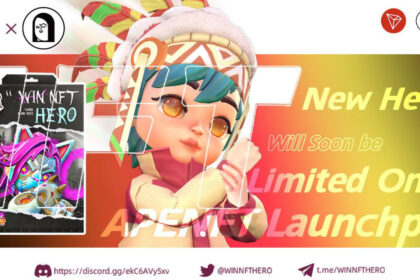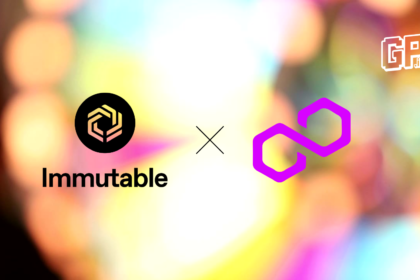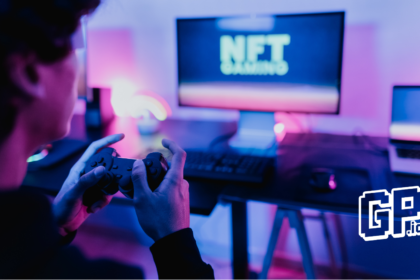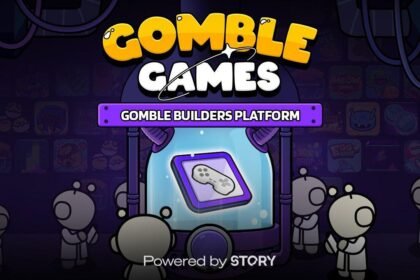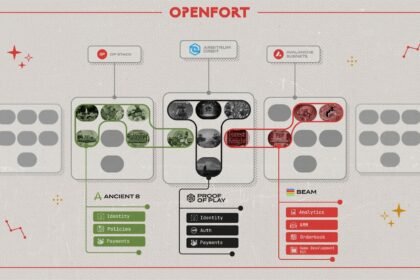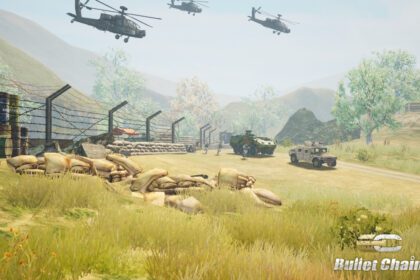Our comprehensive blockchain gaming glossary covers everything from basic blockchain and cryptocurrency terms to the latest game-specific innovations like NFTs, play-to-earn, and gamefi. Whether you’re a seasoned gamer or just starting out, our glossary will help you navigate the exciting and rapidly-evolving world of blockchain gaming.
Blockchain
A distributed ledger technology that enables secure and transparent storage and transfer of data.
Blockchain-based Game
A video game that is built on a blockchain network and utilizes smart contracts and other blockchain technology.
Block Height
The number of blocks that have been added to a blockchain network since its inception.
Broadcast
The act of transmitting or streaming audio or video content over a network, often in real-time. In the context of gaming, broadcasting may refer to live streaming gameplay on platforms like Twitch or YouTube, or to recorded gameplay videos shared on social media or other online platforms. Broadcasts may also include commentary or analysis from players, casters, or other commentators, and may be used to promote games or engage with audiences.
Caster
A player or commentator who streams or broadcasts gameplay, often on live-streaming platforms like Twitch or YouTube. Casters may provide commentary, analysis, and entertainment to viewers, and may also earn revenue from advertising, sponsorships, and donations. In the context of blockchain gaming, casters may also promote games that utilize blockchain technology or non-fungible tokens (NFTs).
Chain Split
A situation in which a blockchain network splits into two separate and incompatible chains, often resulting in the creation of a new cryptocurrency.
Consensus
The process by which a network of nodes in a blockchain system agree on the validity of a transaction.
Consensus Mechanism
A process used by blockchain networks to achieve agreement among nodes on the validity of transactions.
Cross-chain
The ability for different blockchain networks to interact with each other, allowing for the exchange of data and assets across different blockchains.
Cryptocurrency
A digital or virtual currency that uses cryptography for security and operates independently of a central bank.
DAO (Decentralized Autonomous Organization)
An organization that operates through rules encoded as computer programs on a blockchain, allowing for decentralized decision-making and management.
DApp (Decentralized Application)
A software application that runs on a blockchain network and utilizes smart contracts and other blockchain technology for its operation.
Decentralized
A system or network that operates without a central authority or controlling entity.
Digital Land
Virtual plots of land or space that are bought, sold, and traded on a blockchain network, often used in virtual worlds or blockchain-based games.
Fork
A split in a blockchain network, which can result in the creation of a new blockchain with its own set of rules and protocols.
GameFi
A concept that combines elements of gaming and decentralized finance (DeFi), allowing players to earn cryptocurrency and other digital assets by participating in blockchain-based games.
Gameplay
The interactive and dynamic experience of playing a game, including the rules, mechanics, objectives, challenges, and rewards. In the context of blockchain gaming, gameplay may involve the use of cryptocurrency, non-fungible tokens (NFTs), and other digital assets.
Gaming Token
A digital asset that is used as a form of currency in a blockchain-based game.
Gaming Rig
A high-performance computer or gaming setup designed to run resource-intensive games or applications, often used by blockchain gamers to maximize their gaming experience.
Gas
A fee paid in cryptocurrency to compensate miners for processing transactions on a blockchain network.
Gas Limit
The maximum amount of gas that a user is willing to spend on a transaction on a blockchain network.
Gas Price
The amount of cryptocurrency a user is willing to pay per unit of gas to incentivize miners to process their transaction faster.
IGO (Initial Game Offering)
A crowdfunding model used by game developers to raise funds for the development of a blockchain-based game, in which investors can purchase tokens that represent a share in the game’s profits or other benefits.
Immutable
Refers to data that cannot be changed or altered once it has been added to a blockchain.
Merkle Tree
A data structure used in blockchain networks to efficiently verify the integrity of large amounts of data.
Metaverse
A virtual world that is entirely built and run on blockchain technology, allowing for decentralized ownership and trade of virtual assets.
Mining
The process of verifying transactions and adding them to a blockchain by solving complex mathematical problems.
Move-to-Earn Games
A gaming model in which players can earn cryptocurrency or other digital assets by performing physical activities, such as walking, running, or exercising, using wearable devices or mobile apps.
NFT Collection
A group of non-fungible tokens (NFTs) created by an individual or organization with a common theme, design, or purpose, often used for digital art or collectibles.
NFT Drop
A limited-time event in which a set number of non-fungible tokens (NFTs) are released for purchase or distribution, often accompanied by special bonuses or rewards for early buyers.
NFT Farming
A process in which users can earn cryptocurrency or other digital assets by staking their non-fungible tokens (NFTs) in a smart contract on a blockchain network, often used in NFT-based games or collectibles.
NFT Floor Price
The lowest price at which a particular non-fungible token (NFT) is available for purchase on a secondary market, often used as a benchmark for the value of the NFT.
NFT Games
Games that utilize non-fungible tokens (NFTs) as in-game assets, allowing players to buy, sell, and trade them on a blockchain network for cryptocurrency or other digital assets.
NFT Marketplace
An online platform or marketplace where users can buy, sell, and trade non-fungible tokens (NFTs) on a blockchain network, often used for digital art, collectibles, and in-game assets.
Non-Fungible Token (NFT)
A unique digital asset that is stored on a blockchain and represents ownership of a specific item or asset.
Oracle
A third-party service that provides data to a blockchain network, enabling smart contracts to execute based on real-world events and data.
Pay-to-Earn Games
A gaming model in which players can earn cryptocurrency or other digital assets by paying a fee to participate in a blockchain-based game, often used in play-to-earn or move-to-earn games.
Play-and-Own Games
A gaming model in which players can own in-game assets or items that they acquire during gameplay, often stored on a blockchain network and transferable to other players or platforms.
Play-to-Earn
A gaming model in which players can earn cryptocurrency or other digital assets by playing a blockchain-based game.
Private Key
A secret code that is used to access a user’s cryptocurrency or other digital assets on a blockchain network.
Proof-of-Stake (PoS)
A consensus algorithm used by some blockchain networks that requires users to hold a certain amount of cryptocurrency to validate transactions.
Proof-of-Work (PoW)
A consensus algorithm used by some blockchain networks that requires miners to solve complex mathematical problems to validate transactions.
Public Key
A public code that is used to receive cryptocurrency or other digital assets on a blockchain network.
Seed Phrase
A string of words used as a backup to recover a user’s wallet or access to a blockchain network in case of loss or theft of their private key.
Smart Contract
A self-executing digital contract that is stored on a blockchain and automatically executes when certain conditions are met.
Wallet
A digital wallet that is used to store, send, and receive cryptocurrencies and other digital assets.
Virtual Land
A term used to describe digital or virtual space that can be owned, developed, and traded on a blockchain network, often used in virtual worlds or blockchain-based games.




